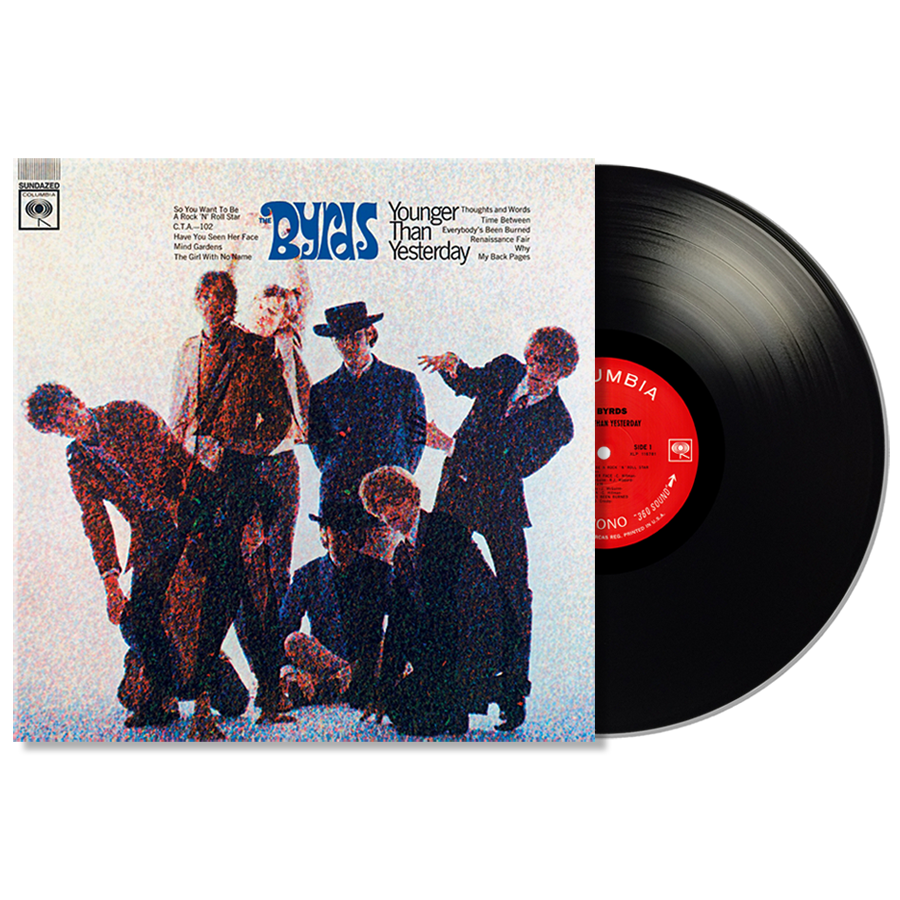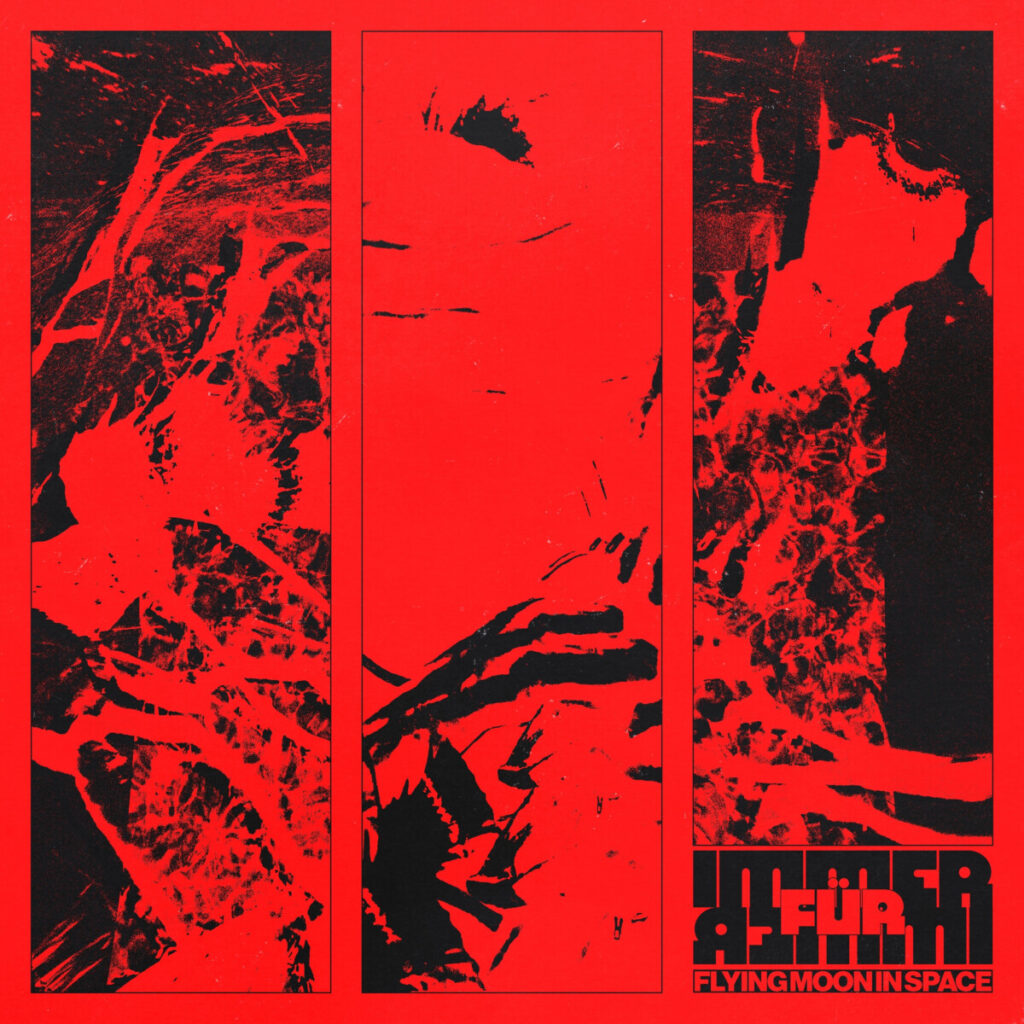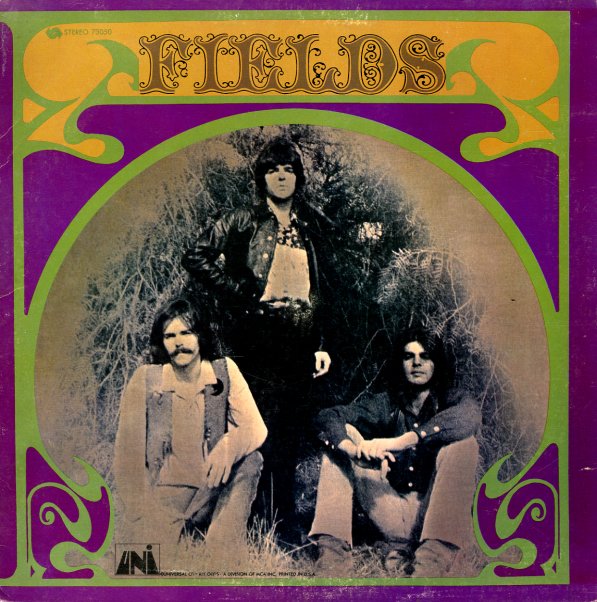The Psych Ward–Younger Than Yesterday by The Byrds
The Psych Ward–Younger Than Yesterday by The Byrds
Is the sitar the most psychedelic string instrument of all? Given its complexity and the effort required not only to tune it but play it – this writer thinks those elements are part of the attraction for psychedelic music: harmonies, drones, dissonance – the works. That said, it is no wonder the sitar has appeared on a lot of classic psych records. Hardly a pale substitute, the electric twelve-string guitar – more often than not a Rickenbacker model – seems to be the de facto (and far more manageable) instrument of choice for psych bands in the late 1960s.
While George Harrison may have had one of the earliest known models (that is a story for another day), Roger McGuinn of The Byrds was probably the best-known player of a Rickenbacker (it is pronounced “back” like the opposite of front and not “Bach”) twelve string in the late 1960s and the heyday of classic psychedelic music. Despite nearly being a Bob Dylan cover act – The Byrds covered no less than four of Dylan’s tunes on their first few albums – Younger Than Yesterday (derived from a line in the Dylan-penned song “My Back Pages”) also featured ten original compositions following the departure of Gene Clark, one of the band’s primary songwriters in 1966.
“So You Want To Be A Rock ‘N’ Roll Star,” written by McGuinn (who had recently changed his first name from Jim to Roger) and Chris Hillman – the band’s bassist and, with the departure of Clark, one of the lead singers. “Rock ‘N’ Roll Star” also features iconic South African jazz trumpeter Hugh Masekela prominently along with Hillman’s driving bass and the requisite chime of McGuinn’s twelve-string. The song also features recordings of crowds at The Byrds’ shows in the UK in 1965. “Have You Seen Her Face,” a Hillman composition shows the band’s ardent interest in the Beatles’ mid-career work – particularly Rubber Soul.
Except for “My Back Pages” written by Dylan, the balance of songs on Younger Than Yesterday were written by members of the band individually or together in the case of “CTA- 102” and “Renaissance Fair” by McGuinn and his friend Bob Hibbard and McGuinn and David Crosby respectively. “CTA-102,’ named for a quasar could be mistaken for a non-existent TV show theme. With its odd noises, vocal treatments, and pitch adjustments, the song is an odd but pleasant piece of pop.
The songs are evidence of a maturing group of songwriters in the middle of their careers. Alas, Younger Than Yesterday would be the end of The Byrd’s jangly neo-psychedelic work as they switched directions dramatically in favor of country rock, a sound they would ultimately be credited with defining. It would also mark the last album for David Crosby who would take his softer (and weaker in this writer’s opinion) songwriting style to fame and fortune with Crosby, Stills, and Nash (and occasionally Young).
Gallery
Recent Articles
Vinyl Relics: Fields by Fields
•
February 10, 2026
A Tale of Crescendo ~ Epilogue
•
February 7, 2026

Loading...
Vinyl Relics: Would You Believe with Billy Nicholls
- Farmer John



